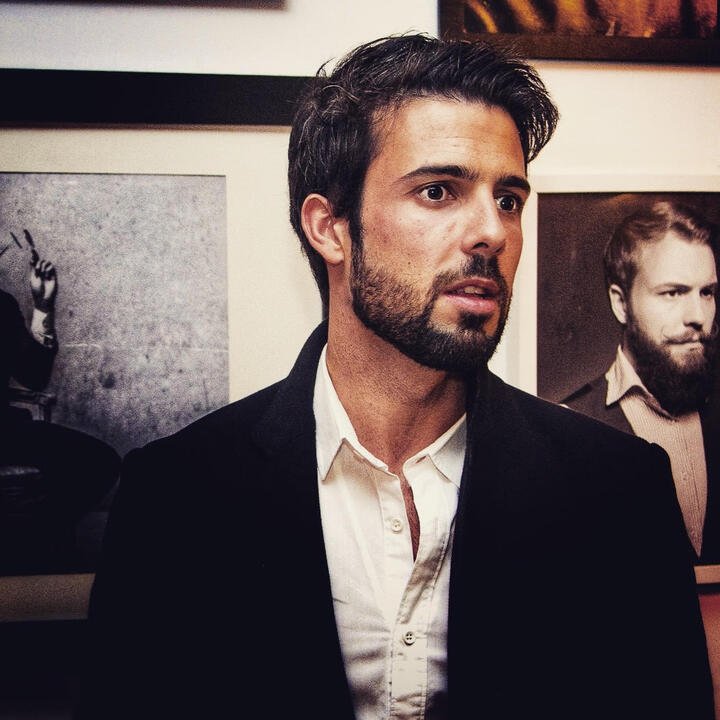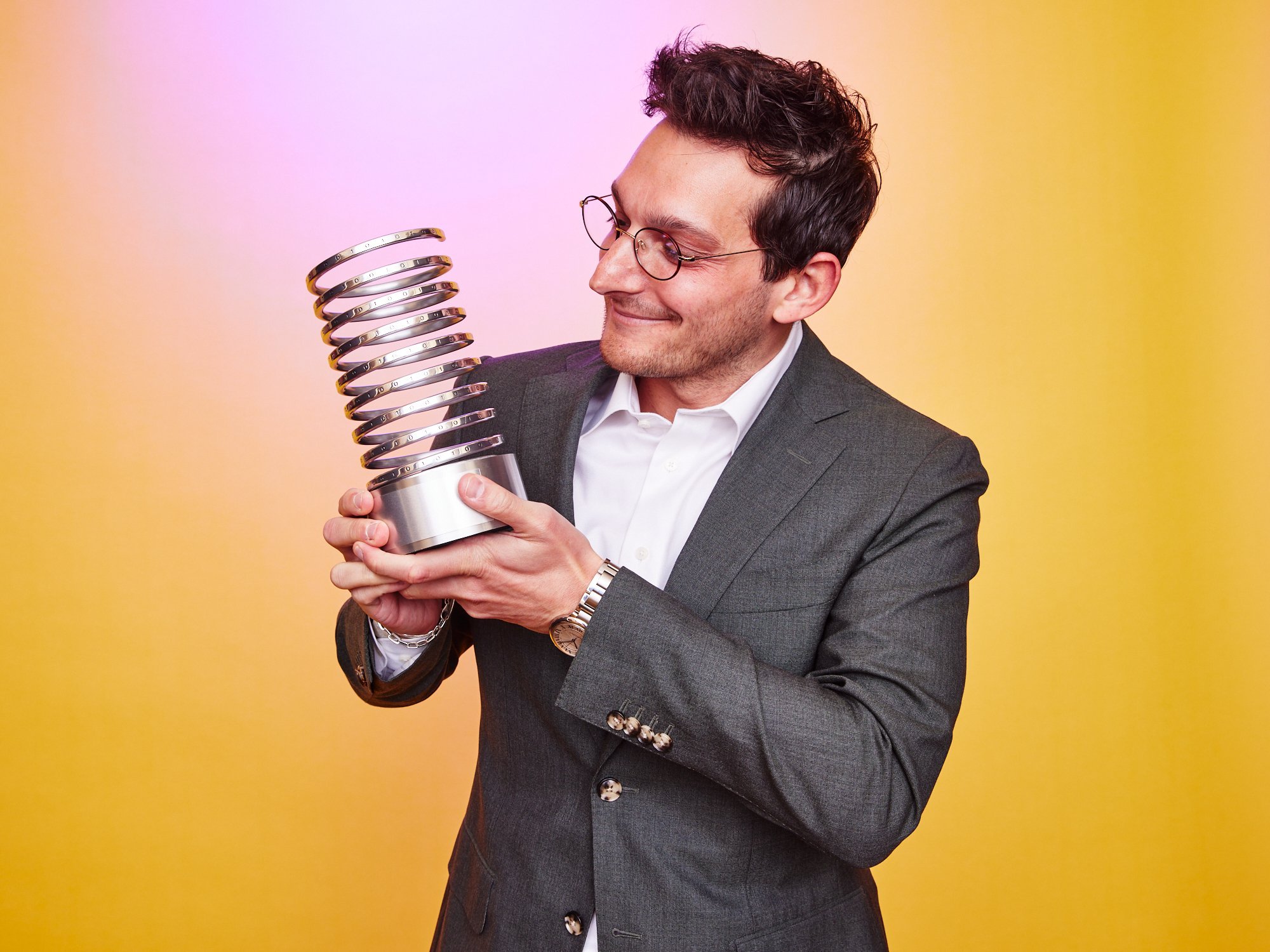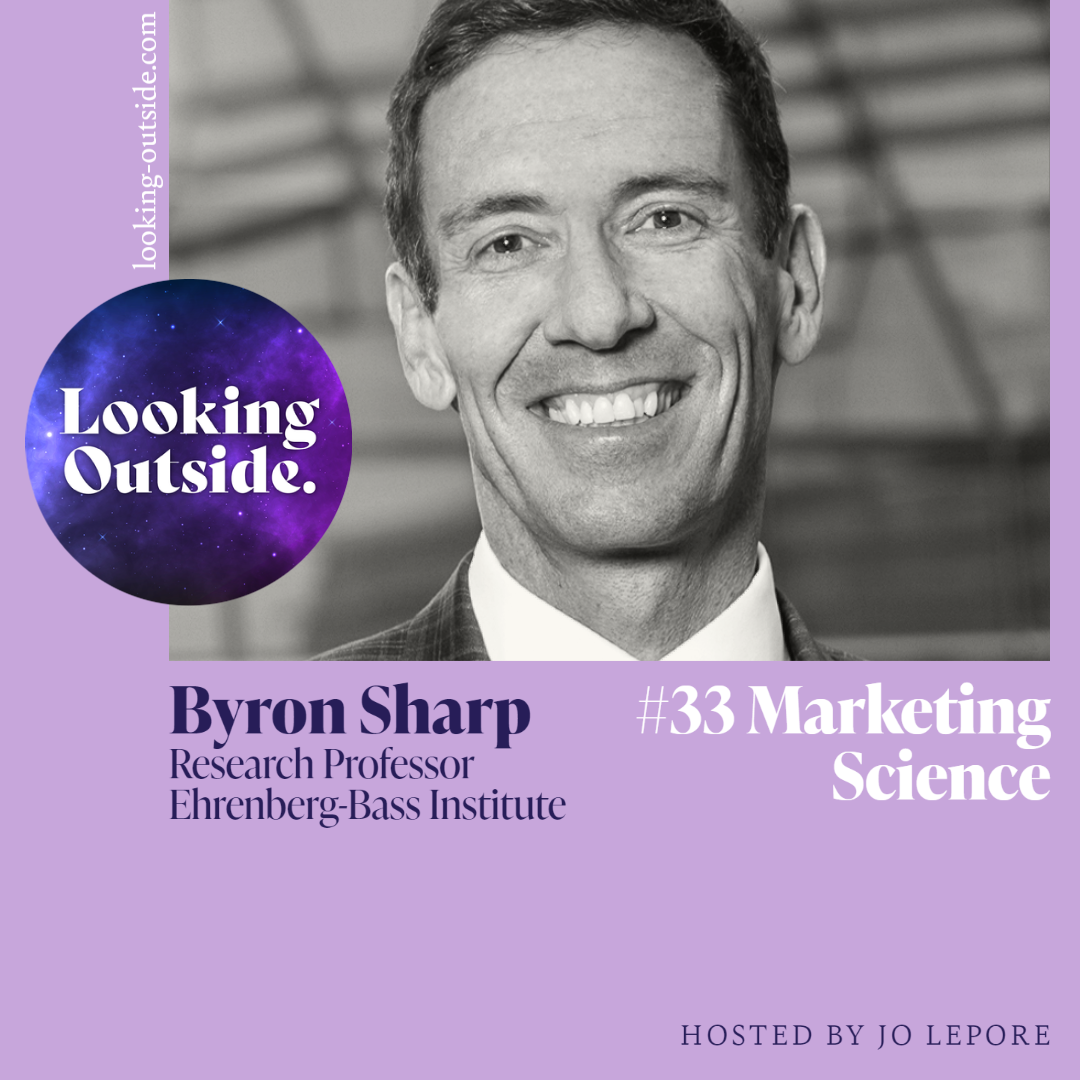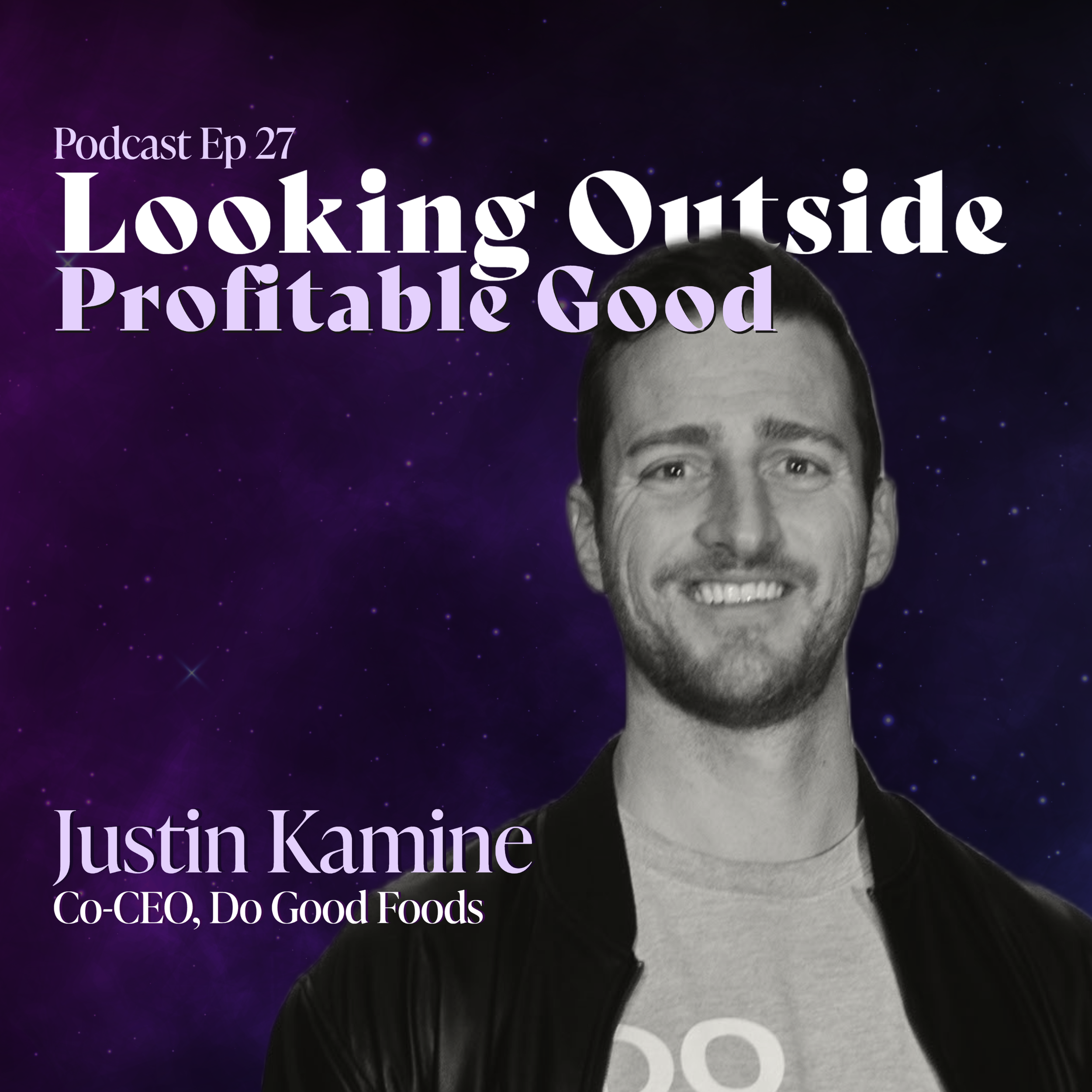
New perspectives of what’s familiar.
New to the podcast? Here are the top 5 episodes:
-

Ricardo Nunes, Airline Pilot
-

Bernard Salt, Demographer
-

Matt Klein, Cultural Commentator
-

Amy Webb, Quantitative Futurist
-

Byron Sharp, Marketing Professor
Episode 45: Retail
Retail, shopping and lovers of physical activations, this one is for you. But perhaps it’s for all of us who look at bringing our brands to life in physical spaces. Today on Looking Outside we’re speaking with top voice in retail, Curator of Shop Drop Daily & Chief Thinker at iiiF, Tim Nash.
As a natural creative who was always good at art, Tim helps brands find ways to reach their consumers in ways that spark a connection through visual cues, smart use of space, and rethinking the DNA across platforms.
Episode 44: Sustainability
Today we’re talking about the big topic of Sustainability within big business. Former Chief Sustainability & Social Impact Officer at McDonalds, Bob Langert, joins the show and shares his three decade long journey in making environmental change happen at one of the biggest organizations in the world.
An environmental activist at heart, Bob shares how he was able to take a topic he cared deeply about but was low on the company priority list, and over time use his passion to make people notice and act. Bob speaks about the need for change agents; fewer people laying low and trying to stay out of trouble, more people who are open, patient and bring big ideas. Ultimately that passion and persistence helps the business, because as Bob says, “Businesses that are satisfied and content are going to die.”
Episode 43: Dystopic Futures
In this episode of Looking Outside we venture into dark futures with global futurist Nikolas Badminton, crossing over the line of realism into dystopia.
While positive futures are important, Nik says facing into the fact that ‘bad stuff does exist’ is the important starting point. We often see plans or goals that are so far out, particularly in government policies, that are psychologically disconnected from the people planning them and therefore aren’t designed to provide anything tangible enough to motivate people to act.
Episode 42: Food with Purpose
In this episode of Looking Outside, we speak with someone crazy enough to think one company can make a difference, social entrepreneur Moritz Everding. Moritz founded food start up SOCHILI to act on his vision of creating food with purpose.
Combining his love of spice, his experience in business innovation and his passion for positive social change, Moritz created his business from Germany with far reaching impact into sub-Saharan Africa. On this episode, Moritz speaks to his conviction that a profitable business idea, whether by someone inside a big corporation, or an entrepreneur, can and should be pressure tested against social, ethical and environmental standards.
Episode 41: Comedy
Another Aussie joins us on Looking Outside to explore the power of laughter and positivity through comedy, with stand-up comedian, actor and TV personality, Monty Franklin.
Having lived in the US and toured 42 states over the last ten years, Monty has performed to more than a million Americans, and whether it’s on stage or at the bank, he speaks to the privilege of making people forget their troubles, even for a little while. He says laughter is one of the greatest things people can experience, and it's his role to find the kind of comedy that is relatable; stories about day to day life that despite being his, are not really about him but his listeners.
Episode 40: Openness
In this episode of Looking Outside we explore living your life and career curiously through an openness to learning with trained pharmacist and director of the Novartis Pavillon exhibiting the wonders of medicine, Marcel Braun.
Marcel studied medicine but throughout his career has remained open to entering new fields and living in new places, something he calls both accidental in drifting from one opportunity to another, and intentional as he ticked off ‘dream roles’ from his bucket list. Marcel has worn many hats. He credits this to both chance (“What are the odds that I got to do everything I did?”) but equally to openness; as opportunities came up, scary or divergent as they may have been, Marcel first and immediate said yes, then worked out how to make it happen second.
Episode 39: Semiotics
In this special LIVE episode of Looking Outside, recorded at the Insights and Innovation Exchange event in Texas, we look more closely at the symbols and signs that surround us, the study of Semiotics, with semiotician, author and marketer, Dr Rachel Lawes.
Rachel blends her 20 years in Market Research and her academic training as a Social Psychologist, with a focus on how people communicate through the study of semiotics. Rachel describes this as looking more deeply and critically at what is at face-value, and how that can help us make more deliberate decisions.
Episode 38: Flying
Are some people simply more cut out to take on big responsibilities, where lives are at stake, or is it actually just good training? In this episode of Looking Outside, we explore the mindset and skills of preparedness in Flying with commercial airline pilot, Ricardo Nunes.
Being responsible for hundreds of people on the plane is not something Ricardo takes for granted. While many of us would find that extreme level of responsibility crippling, Ricardo says the confidence comes from understanding the weight of the responsibility, and taking that seriously by training for the worst.
Episode 37: Innovation BS
Lars Behrendt joins us for this episode of Looking Outside, discussing the bureaucracy, ego and over-perfection that gets in the way of great innovating … in other words, Innovation Bullshit.
Jo and Lars discuss why innovation without execution is bullshit, and why no one but the customer is the real expert in what a good idea is. Besides, as Lars says, real market feedback is the fun part of innovating. He makes this shift in process successful only by getting absolute commitment upfront in a fast, iterative process where skepticism is left at the door and a safe bubble is erected with risk-averse people unwelcome. Why? Ultimately, people in the process who are ‘trying to find a problem, will create a problem.’
Episode 36: (Better) Snacking
In this episode we discuss the future of snacking with daydreamer, sunshine chaser and optimist, Matt Weiss. Matt founded his own upcycled snacking company, RIND Snacks, and lives by the mantra of making weird and wonderful things happen, even if it feels impossible.
In this chat, Jo and Matt discuss what health means in the context of personal happiness and fulfilment, from what you eat, to the lens through which you see the world, to self awareness of what gives you sustenance (food or otherwise!).
Episode 35: Culinary Creativity
Inspired by a conversation at the 2023 CES Food Tech Expo, today we discuss how one of the most traditional industries is being transformed through Culinary Creativity, with CEO and Founder of Hungry House, a platform for creative chefs, Kristen Barnett.
In creating Hungry House, Kristen shares how she puts the values of both the chef and the customer first, by focusing on food quality. Her platform allows the customer to add more meaning to the choices they make in how they explore and sustain through food, while the culinary creator, the chef, can ideate a full story around what they bring to the plate.
Episode 34: Motivation
In these volatile and uncertain times, it can feel harder than ever to achieve things for ourselves and our teams, so today we take a cue from the performance experts, speaking about Motivation with mental performance coach, Lauren Johnson.
Lauren shares the principles of psychology that apply whether you’re an athlete or marketer. The principles of: self awareness to know your own signals before you burn out, self control to react appropriately in the space between external stimulus and your response to it, and of the laws of diminishing returns, beyond that point at which we are truly effective, whether we realize it or not.
Episode 33: Marketing Science
Marketing is often thought of as a creative field, in part because it leans into the art of negotiation to sell a product, but it must be done with rigor. In this episode, we explore that rigorous side of marketing, and the research that should shape its decisions, with Marketing Science research professor and Director of the Ehrenberg-Bass Institute, Byron Sharp.
Marketing science is at its core punk, or anti-establishment, and because of this Byron challenges any purist academic to ‘get out of the lab’ and the marketing bubble, and into the real world. There you must put aside your assumptions about what works based on isolated cases, or personal passions, and any snobbery you may hold about unglamourous categories, and seek out the patterns that form evidence. “Look and you will see,” Byron says, because most people don't bother to really look.
Episode 32: Conflict
Does conflict and incompatible perspectives always have to be a negative? In this episode of Looking Outside we speak with Raj B. Shroff, Founder & Principal at PINE, a strategy and design agency to hear how he and his company leverages conflict to get to a better outcome.
Raj shares how his workplace thrives on openness, when ideas are great or when things aren’t working, and how he creates the space for everyone part of the company to feel comfortable with that. It’s empathetic to be honest, Raj says, because head nodding doesn’t get the best out of people nor the work.
Episode 31: Synthetic Futures
We kick off Season 4 bravely with the visionary Amy Webb, Quantitative Futurist, CEO of the Future Today Institute, professor at NYU and author. In this episode, as in Amy’s book The Genesis Machine, we discuss the paths towards synthetic futures and the methods in creating more credible focus on the long term future.
Amy takes us into the future, and the topic of the latest book she co-authored with Andrew Hessel, The Genesis Machine, explaining how over 13 years of researching AI she noticed something profound happening in the synthetic biology space. General purpose technologies have the potential to fundamentally alter society and impact the economy, like electricity and the internet have, and while Amy concedes scaling it is a ‘ways off’, we should be paying attention, and planning for synthetic biology to act as the next generative purpose technology – transforming medicine, the environment and our food systems.
Episode 30: Fear
The final episode of Season 3 takes us to the precipice of change, looking at the topic of Fear. We discuss this with Mark Minukas, co-author of Unfear, a book on the very topic.
Through intervention, and self-reflection, Mark illustrates how we can use fear and fear-driven reactions to our benefit, to better understand what we’re trying to ‘react’ to and what threatens our self-identity. The game is to be curious, Mark says, and use fear as a cue for learning more about yourself.
Episode 29: Archives
In episode 29 we peek back in time and look at the future that comes from the past, exploring the field of Archives with Senior Manager of the McDonald’s Golden Archives, Archivist Mike Bullington.
As an information gathering profession, often thought to be buried in old relics and secret data, Mike shares how he turns the knowledge into action, amplified by people throughout the organization, by making people care about the past.
Episode 28: Thinking
We start a new year with a new way of Thinking, approaching the topic of careful consideration, extrapolation and explanation in a critical way. Joining us is self-proclaimed overthinker, award winning writer, leading cultural commentator and Foresight & Strategy lead at Reddit, Matt Klein.
Matt takes on a lot and he takes in a lot. He shares how he loads information and how he avoids overloading - a process where he binge eats information and then let's it "simmer" at its own pace during a silent walk outside. When he returns to it, it forms a constellation of connection points and inspiration sparks.
Episode 27: Profitable Good
We end 2022 on a pragmatic but aspirational note, reflecting on the ability to make positive change without needing to disregard nor fully transform the current dominant system. We discuss Good business that can also be Profitable, with Do Good Foods Co-CEO and Co-founder, Justin Kamine.
As an ambitioned leader of a company progressing the agriculture industry forward on climate action, Justin proposes the concept of a business that is more sustainable, more equitable for food producers, and still profitable.
Episode 26: Change Coalitions
In this episode of Looking Outside we learn how to weave together the voices of the future, the agents with vision, to create Coalitions of Change, with Cat Tully, Founder and Director of the School of International Futures.
Having created the Next Generation Foresight Practitioners Network, Cat speaks to why it’s critical we use the voice of young people as evidence towards future planning, by allowing those who will live in the future to speak for it.



















